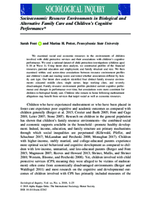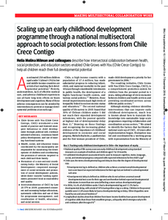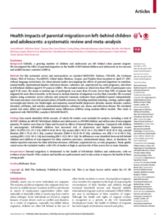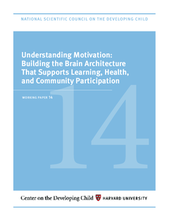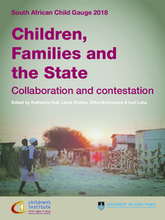Displaying 151 - 160 of 485
This paper focuses on the longitudinal examination of perceived reactive attachment disorder (RAD) symptoms and indiscriminate, insecure and pseudomature behavior in foster children, many of them having experienced maltreatment and neglect in the family of origin.
The authors of this article examined social and economic resources in the environments of children involved with child protective services and their associations with children's cognitive performance.
This article describes how intersectoral collaboration between health, social protection, and education sectors enabled Chile Grows with You (Chile Crece Contigo) to help all children reach their full developmental potential.
This study investigated the effect of parental migration on the health of left behind-children and adolescents in low-income and middle-income countries (LMICs).
In this interactive graphic, hover over or click the labels on the brain regions to learn more about how each region affects motivation, and hover over or click the highlighted text to the left of the brain image to see how those regions interact.
This paper explores the complex set of intertwined social and biological factors influences people’s motivation to participate actively and productively in schools, jobs, and communities— and to persevere in the face of setbacks.
This thirteenth issue of the South African Child Gauge® focuses on children in relation to families and the state, both of which are central to providing for children and supporting their development.
The current article provides a framework for developing an early childhood system of care that pairs a top‐down goal for the alignment of services with a bottom‐up goal of identifying and addressing needs of all families throughout early childhood.
Grounded in the framework of positive youth development (PYD), this study was designed to examine how ecological assets (i.e., neighborhood social cohesion and trusting relationships with caregivers) and individual strength (i.e., resilience) predict subjective well‐being among left‐behind children.
This paper presents findings on the previous life experiences of an entire cohort of ‘difficult to place’ adoptees who were placed in Australia over 26 years.

